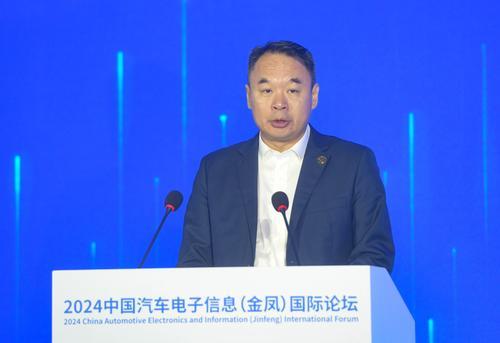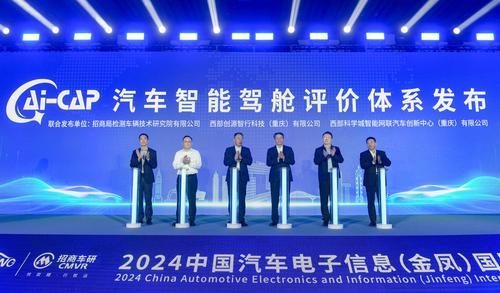 Bridging News
Bridging News
China Expected to Become World's Largest Autonomous Vehicle Market in 5 to 10 Years | Insights
Chongqing - The 2024 China Automotive Electronics and Information (Jinfeng) International Forum opened in Chongqing on October 9.
The event brought together academicians from the Chinese Academy of Engineering, global industry experts, leading scholars, and technical elites from major automakers and component suppliers to explore the latest trends in automotive electronics and to promote the high-quality development of the intelligent connected vehicle industry.
As technology rapidly advances, automotive electronics play a crucial role in transforming the global automotive industry. Chongqing is at the forefront of developing intelligent, connected new energy vehicles. In the first half of 2024, the city produced 1.214 million vehicles, regaining its title as China's top "automotive city."
Min Zhaoyuan, Party Secretary and CEO of China Merchants Vehicle Testing Technology Research Institute (CMVR) emphasized that cutting-edge technologies such as sensors, big data, and artificial intelligence have driven breakthrough progress in areas like smart cockpits and autonomous driving.
This cross-sector integration is becoming a key driver of the rapid growth of intelligent connected vehicles, presenting new opportunities for the automotive electronics industry.

Min Zhaoyuan, Party Secretary and CEO of China Merchants Vehicle Testing Technology Research Institute (CMVR). (Photo/Zhang Jinhui)
CMVR, a national vehicle testing and research institute, is crucial for developing automotive electronics and intelligent connected vehicles. It oversees key platforms, including the Ministry of Transport's Autonomous Driving Testing Ground and Chongqing's Electromagnetic Compatibility Research Center, managing 95% of the city’s autonomous driving test roads.
Professor Li Jun, an academician of the Chinese Academy of Engineering and professor at Tsinghua University, predicted that China could become the world's largest autonomous vehicle market within the next five to ten years.
He noted that autonomous driving technology offers immense value, providing safer, more efficient, and enjoyable travel alongside significant economic and social benefits. However, he stressed that safety remains the core value of autonomous vehicles and is a non-negotiable demand from consumers.
New evaluation systems for autonomous vehicle safety and cockpits
The forum also saw the unveiling of two key evaluation systems: the Automotive Intelligent Safety Assessment Protocol (AI-SAP) and the Automotive Intelligent Cockpit Assessment Protocol (AI-CAP).
AI-SAP focuses on ensuring the safety of drivers, passengers, and other road users. It evaluates the safety performance of intelligent vehicles in complex traffic scenarios, assessing factors such as risk response, regulatory compliance, and human-machine interaction safety.
The first batch of evaluation results is expected to be released in the first half of 2025. This will provide a comprehensive safety testing framework to accelerate the development and deployment of advanced autonomous vehicles in China.

The Automotive Intelligent Cockpit Assessment Protocol was unveiled at the launch event. (Photo/Zhang Jinhui)
AI-CAP, meanwhile, evaluates intelligent cockpits across four dimensions — cockpit, autonomous driving, vehicle-road-cloud integration, and safety. It introduces a core competitive model consisting of a systematic framework, a comprehensive evaluation system, an efficient database, and four core technological highlights.
By establishing unified testing protocols, AI-CAP sets standardized processes for designing, developing, and testing intelligent cockpits, raising industry-wide standards for consistency and innovation.
CMVR hopes that tackling common technological challenges and developing standardized testing protocols will foster innovation in the industry. These efforts aim to drive the transformation of China’s automotive sector and accelerate the commercialization of intelligent connected vehicles.
 Related Stories
Related Stories